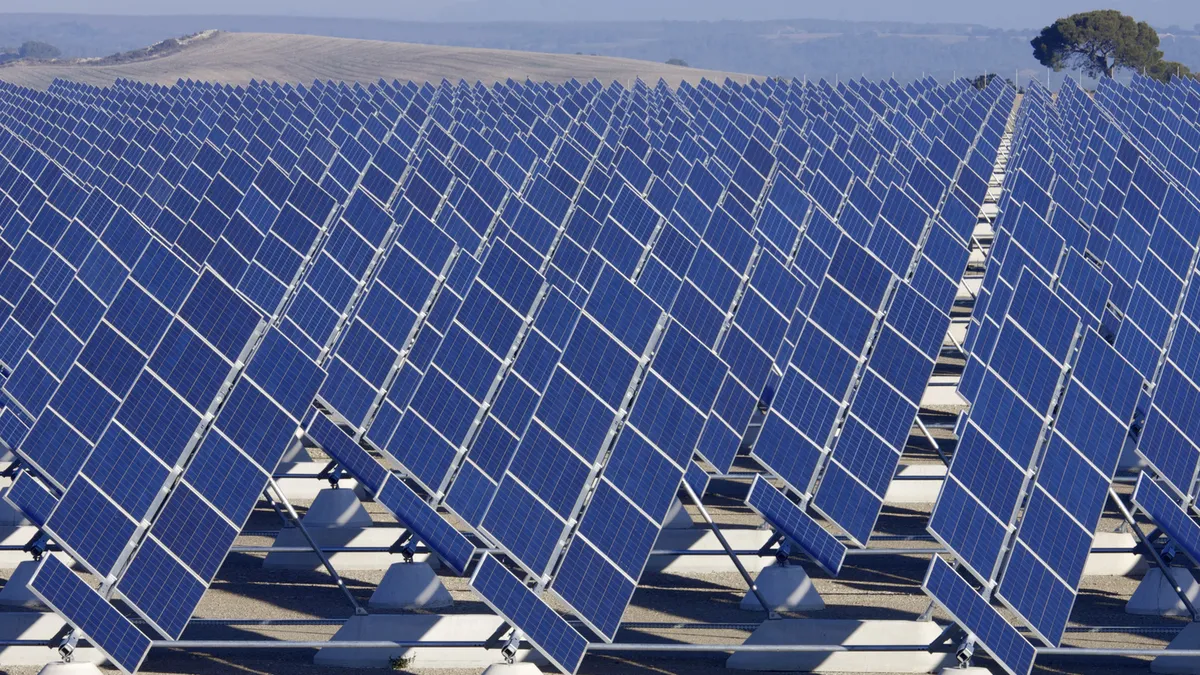Dive Brief:
- Minnesota Power this week announced a significant expansion of its SolarSense program, tripling rebates and adding outreach, research and development, and a low-income pilot program.
- The proposal also includes a plan to boost the utility's efficiency and conservation program, with a focus on rebates for energy-efficient lighting, appliances and HVAC, new home construction and home energy audits.
- Also this week, the state's Public Utilities Commission approved Minnesota Power's first community solar project, an approximately 1 MW system that will be constructed in two locations beginning this summer.
Dive Insight:
Growing interest in solar energy has led Minnesota Power to propose an expansion of its SolarSense program, with the biggest news being the utility would triple the pool of money available for rebates.
The utility wants to grow rebate funds to approximately $1 million annually for the next three years, "effectively tripling the rebate dollars available to customers for installation of solar systems at their homes and businesses." A typical residential customer installing a 5 kW solar system would receive roughly $6,000 rebates, the utility said. That would help bring down system costs by about 30%.
Expansions to the solar outreach program will also include a new solar pilot program for low-income customers, as well as funding for solar education and outreach, research and development, and program development.
“Our customers’ interest in solar energy continues to grow and there are multiple ways we are seeking to respond to this trend based on individual customer preferences,” said Tina Koecher, manager of customer solutions for Minnesota Power. “Expanding the SolarSense program, for example, will allow us to provide additional incentives and expertise to people who have homes or businesses in locations with plenty of sun and want to produce solar energy on site.”
The utility's proposed community solar garden, which aims to give access to customers who either can't or don't want to install panels, was also approved by state regulators this week.
"We’ve seen steadily growing interest in solar energy in our region and based on the success of this pilot program, additional community solar gardens could be offered to our customers in the future," said Margaret Hodnik, the utility's vice president of regulatory and legislative affairs.
But PV-Tech reports those proposals have drawn fire from clean energy advocates. Competitors are being pushed out, the advocates claim, and not opening up a way for these developers to build solar gardens in the utility's service area.
The solar garden will be constructed in two locations, including a 40 KW array on company-owned land and a 1 MW project on vacant land owned by St. Louis County. Both locations will combine to supply electricity for Minnesota Power solar garden subscribers.
Minnesota Power will own the smaller array, and United States Solar Corp, a developer based in Minneapolis, will own and operate the larger array with the generation sold to Minnesota Power through a power purchase agreement.
Residential customers subscribing to the community project and who use about 750 KWh per month would pay between $81 and $95 for solar energy. Nonparticipating customers would pay about $80.
The utility is selling subscriptions in 1-Kw blocks, and customers can choose to purchase enough to cover all or a portion of their monthly electricity needs. The upfront one-time payment for each kilowatt block is about $2,100.















